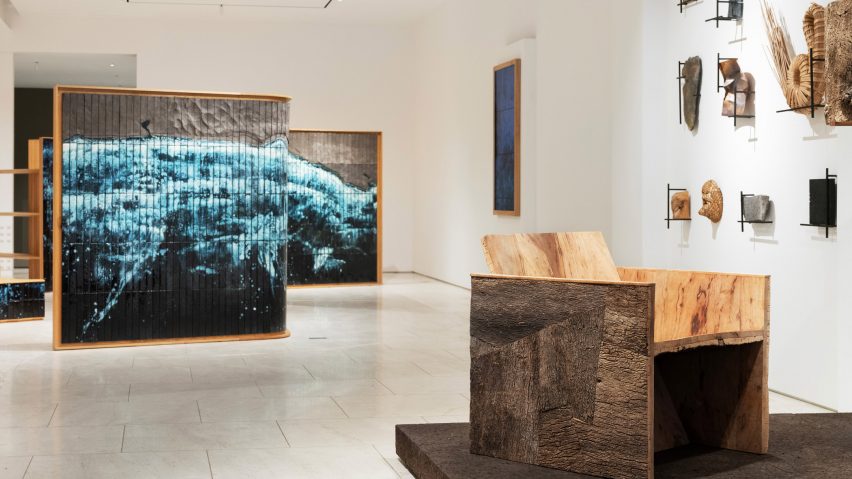
Bark-lined furniture among showcase of Noé Duchaufour-Lawrance's work in New York
French designer Noé Duchaufour-Lawrance has shown three collections highlighting European vernacular craft traditions at New York gallery Demisch Danant during NYCxDesign.
Duchaufour-Lawrance showed three collections under the Made In Situ collection at the downtown Manhattan gallery Demisch Danant.
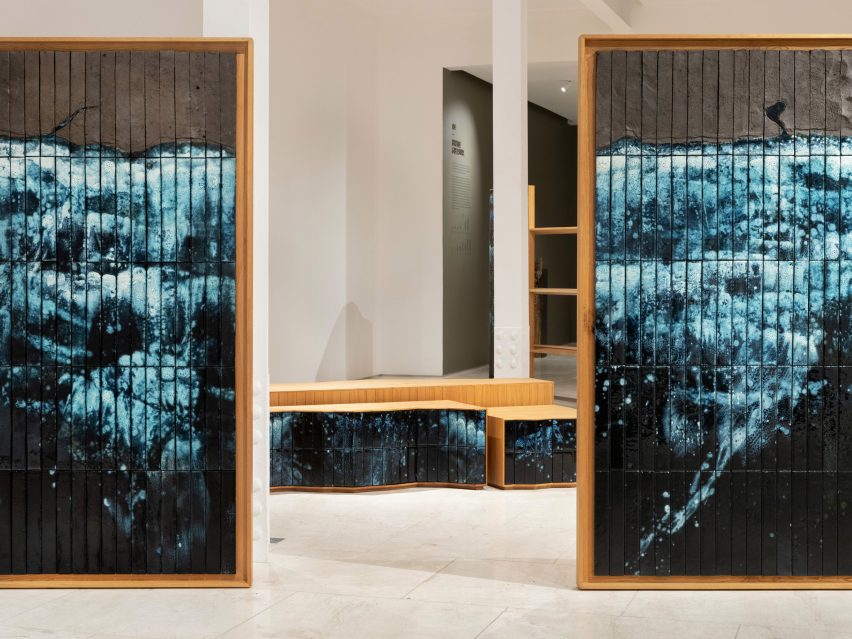
Ranging from furniture lined with bark to beeswax candles where the wax becomes part of the candle, the pieces derive from Duchaufour-Lawrance's experience in small European communities and their ecosystems, as well as the unity between craftsmanship and natural processes.
The designer travelled to each place to act as an interpreter between different vernacular traditions and between the traditions and his audience.
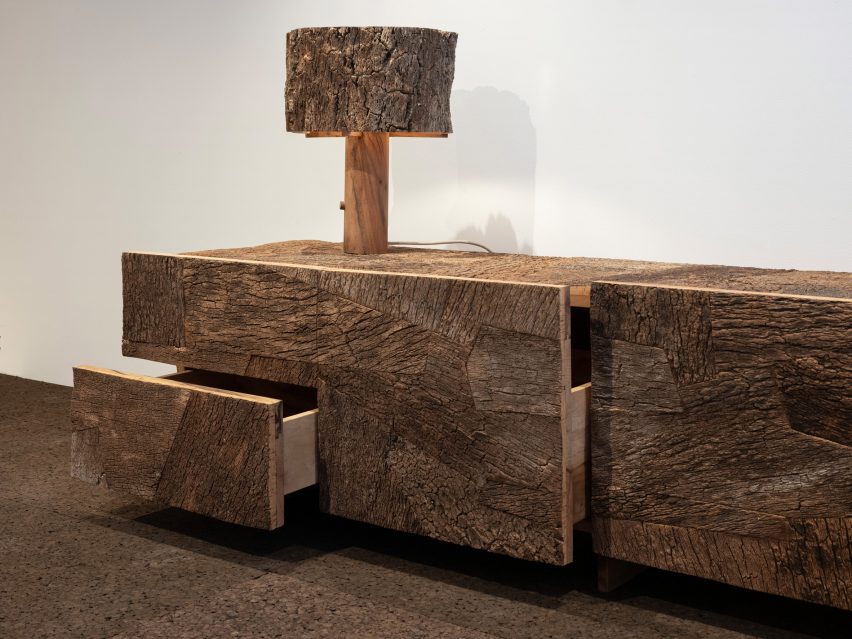
"My approach has been reversed," said Duchaufour-Lawrance.
"The idea no longer creates the piece of furniture or the object, it is the practice of the artisan and his knowledge of the material, which determines or imposes it."
"By moving from one design to another, as a designer I became more like a translator," he continued.
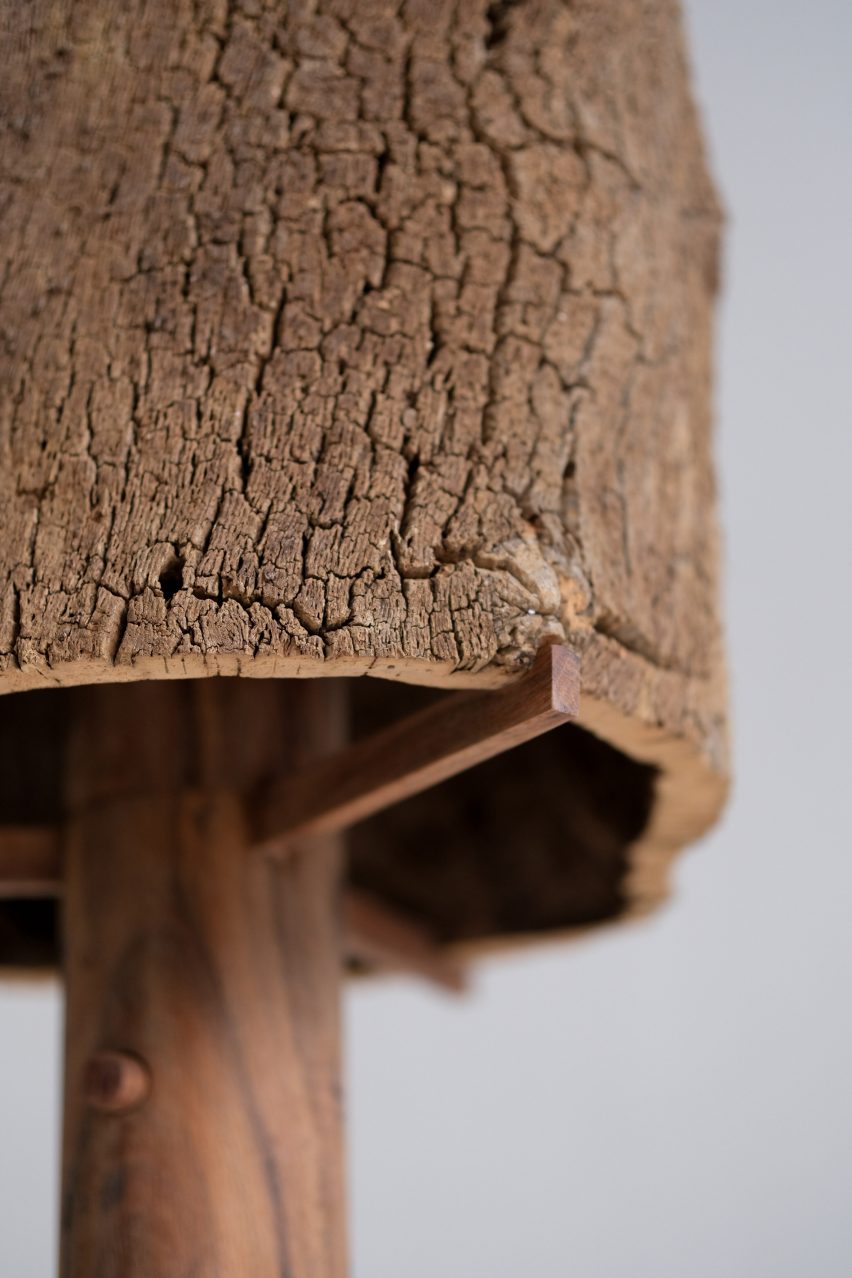
Visitors entering the glass-walled entrance to the gallery first saw a collection of graphic work dedicated to the Made In Situ collection, which has been an ongoing process over the past five years, including explorations in burnt cork furniture.
The first set of objects was Chêne & Liège, a collection of chairs, shelving and lamps that showcases the process of collecting oak cork in France.
According to the designer, the oak-cork bark is an important aspect in making forests fire-resistant, but must be removed for the health of the trees.
Here, material from the trunks of burnt trees was combined with healthy bark harvested with the help of local lumberjacks, harvesters and woodworkers to showcase the range of the material in nature.
"Together, the wood salvaged from the flames and the healthy bark create furniture of a paradoxical nature that is crafted with an awareness of social and environmental issues," said the gallery.
The next collection included panels of azulejos – Portuguese tiles – painted and shaped by the artist with the help of craftspeople in Lisbon.
Each of the panels, which are backed by wood structures reminiscent of boats, represents different points on the coastline between Brittany and Portugal to interrogate "the meaning and materialization of memories and the connection to the mighty ocean," according to the team.
An LED light installation with undulating blue shades was showcased on the wall to further the oceanic theme of this collection.
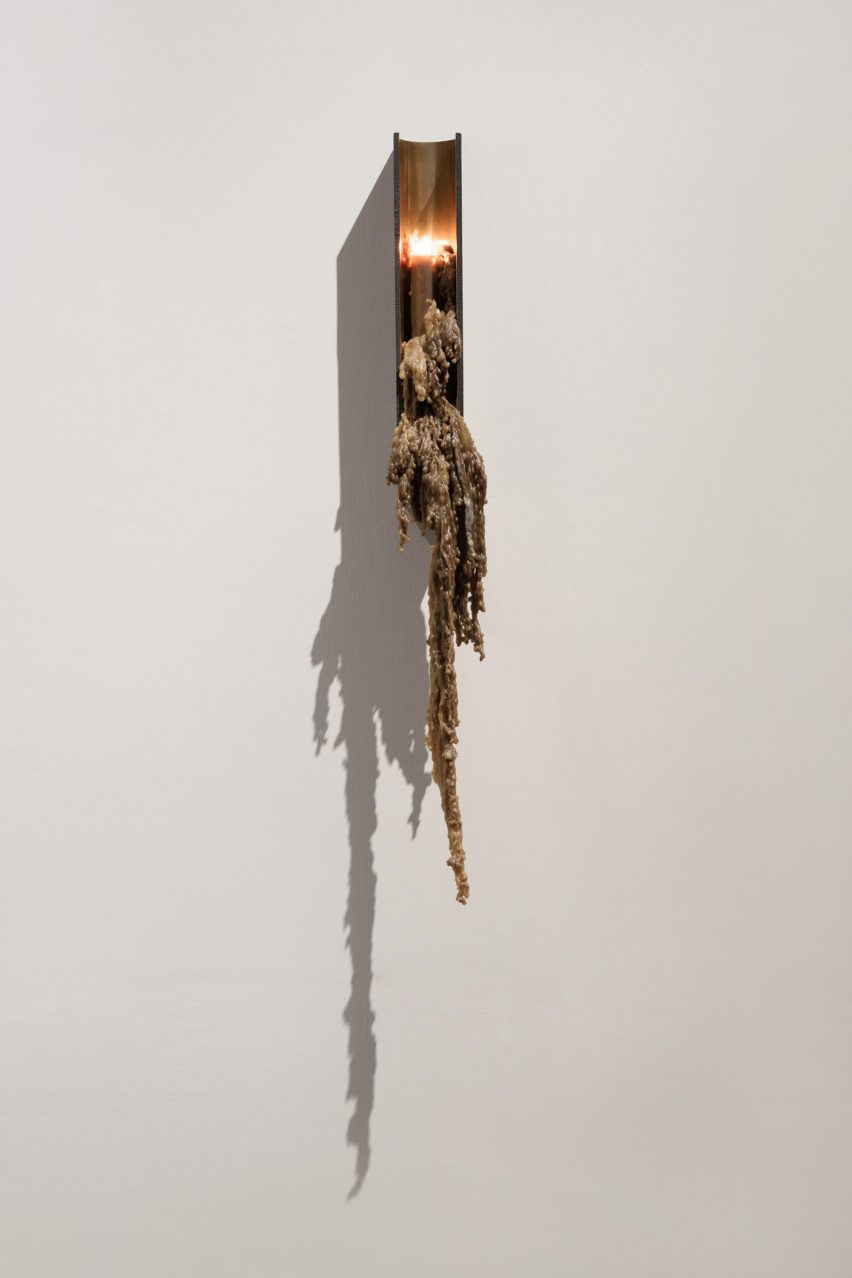
Finally, an array of beeswax candle holders were presented in the back of the shop.
The holders were crafted in many different sizes and have forms based on the processes of smelting the designer experienced in a propeller factory in Peniche, Portugal.
Duchaufour-Lawrance then travelled across Portugal, working with beekeepers to collect different types of wax to fashion into darkly coloured candles.
The wax is meant to "solidify directly with the bronze" of the holders, and the gallery noted that one of the pieces has sold with the melted wax still intact.
The photography is by Lucas Creighton.
Made In Situ is on show at Demisch Danant from 16 May to 29 June. See the NYCxDesign 2024 guide on Dezeen Events Guide for information about the many other exhibitions, installations and talks taking place throughout the week.